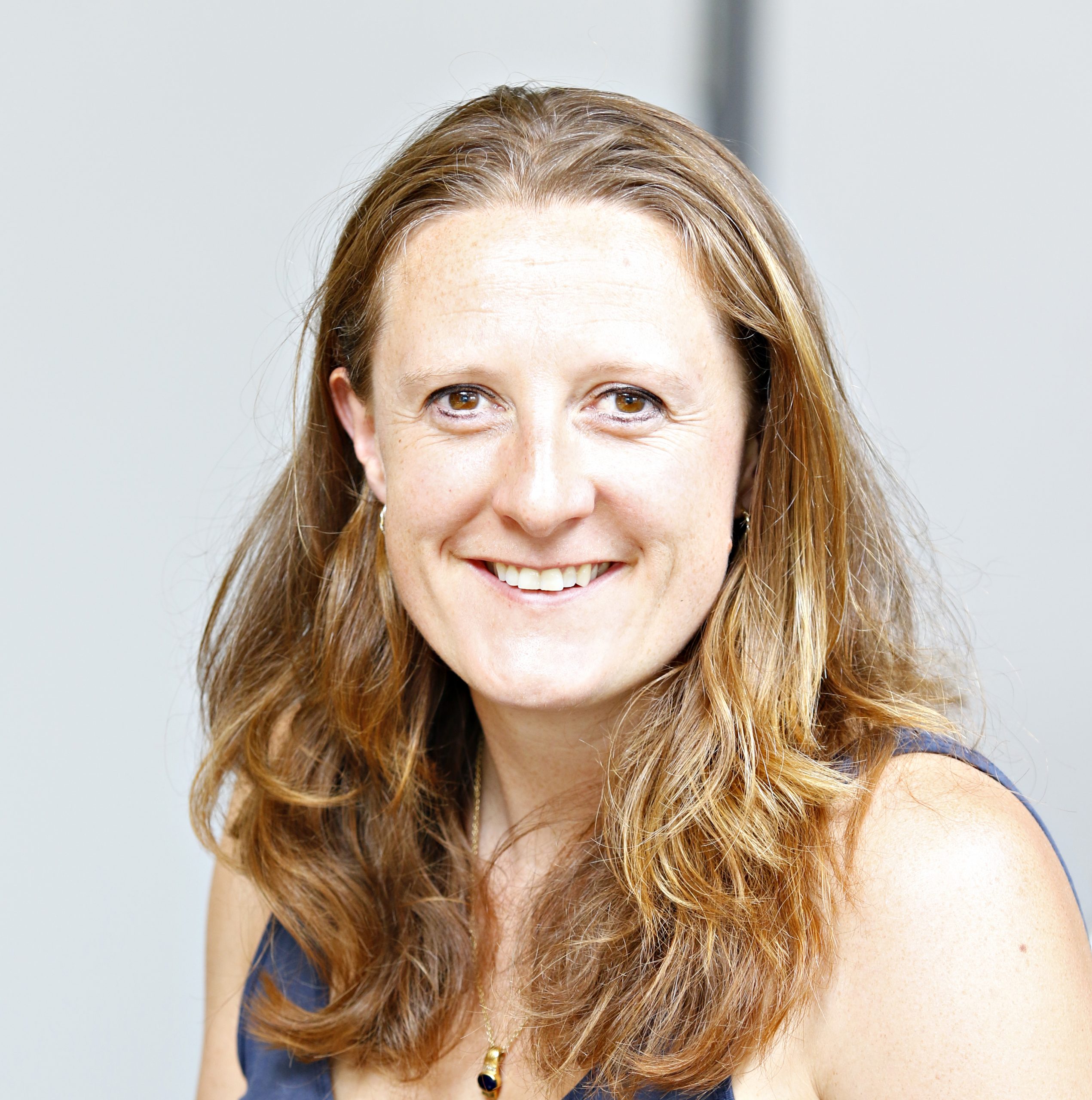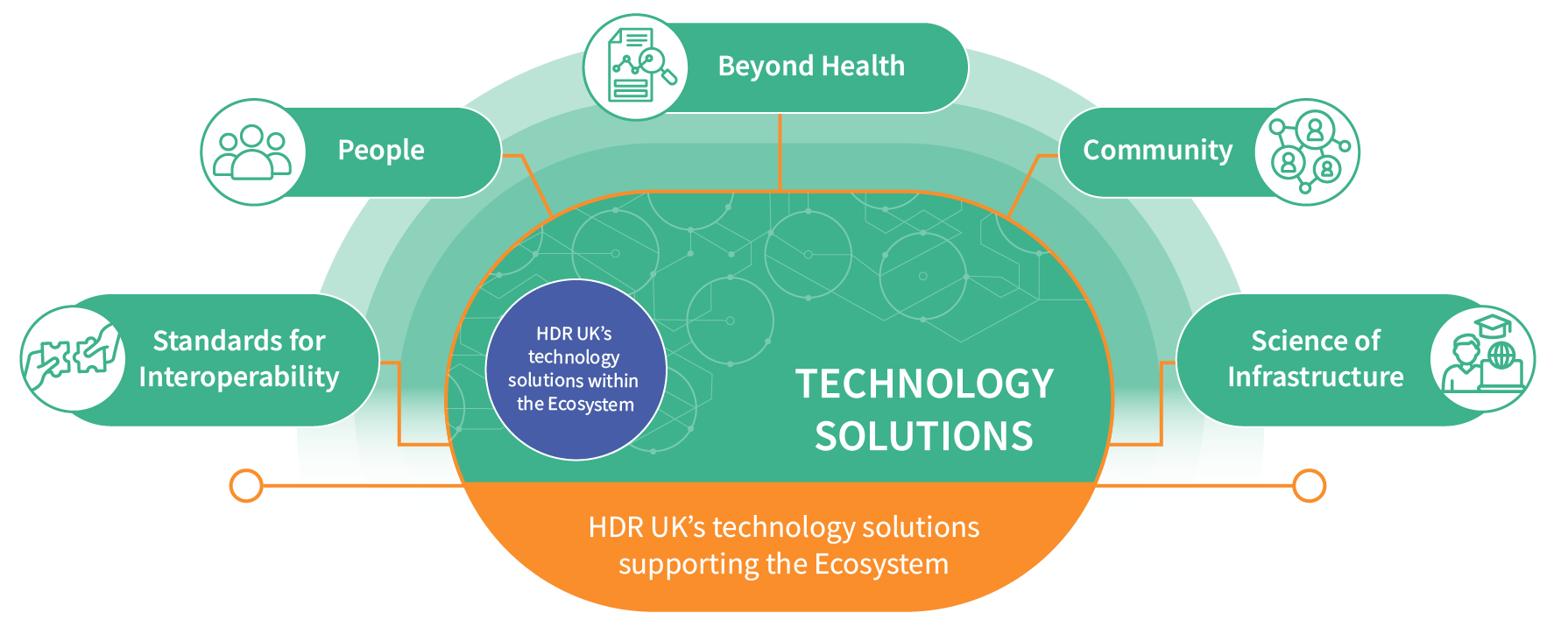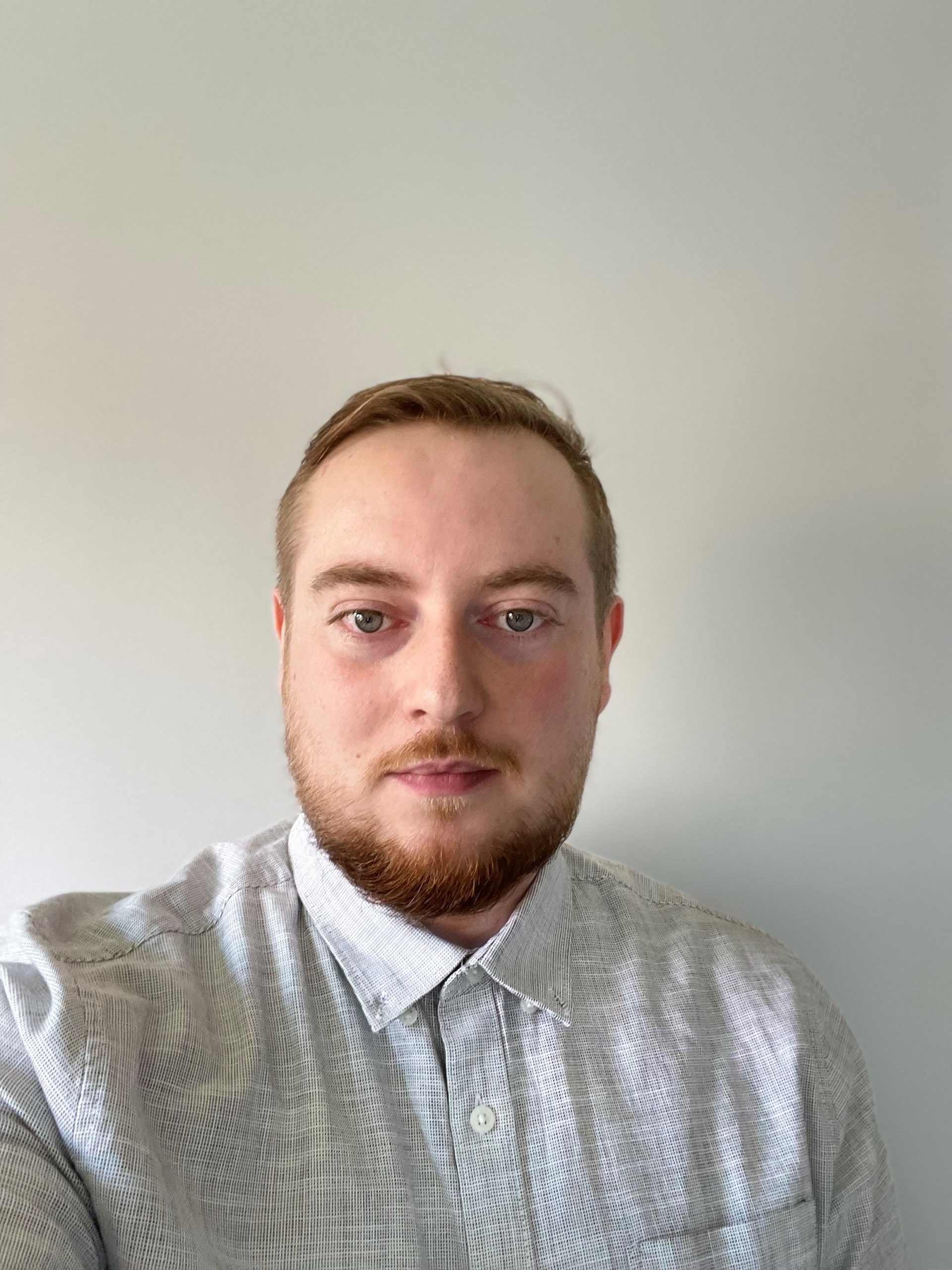There are many technology solutions already out there in the ecosystem. As part of supporting an effective ecosystem, we are working closely with the community to signpost to existing solutions, develop standards and best practice, and encourage integration of these tools. Such solutions enable the researcher journey, facilitate the latest AI and large-scale analysis techniques and curate usable data.
We are also contributing to the ecosystem, enhancing and developing a range of innovative solutions , such as the Gateway, the Phenotype Library, the development of a Disease Atlas, and Federated Analytics. Our solutions are open-source, with open-APIs and documentation, built with and for the community. We welcome collaborators and feedback on our solutions.
We aim to assemble, reuse and enhance existing solutions wherever possible and will only consider new solutions when there is a genuine requirement for it. These solutions will be co-developed with the community and designed and built once for the benefit and use of many.




